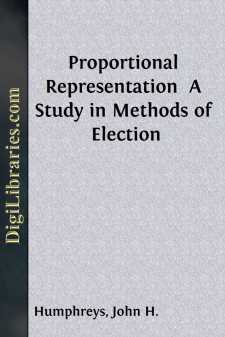Categories
- Antiques & Collectibles 13
- Architecture 36
- Art 48
- Bibles 22
- Biography & Autobiography 816
- Body, Mind & Spirit 145
- Business & Economics 28
- Children's Books 17
- Children's Fiction 14
- Computers 4
- Cooking 94
- Crafts & Hobbies 4
- Drama 346
- Education 58
- Family & Relationships 59
- Fiction 11834
- Foreign Language Study 3
- Games 19
- Gardening 17
- Health & Fitness 34
- History 1378
- House & Home 1
- Humor 147
- Juvenile Fiction 1873
- Juvenile Nonfiction 202
- Language Arts & Disciplines 89
- Law 16
- Literary Collections 686
- Literary Criticism 179
- Mathematics 13
- Medical 41
- Music 40
- Nature 179
- Non-Classifiable 1768
- Performing Arts 7
- Periodicals 1453
- Philosophy 66
- Photography 2
- Poetry 897
- Political Science 203
- Psychology 45
- Reference 154
- Religion 516
- Science 126
- Self-Help 85
- Social Science 82
- Sports & Recreation 34
- Study Aids 3
- Technology & Engineering 59
- Transportation 23
- Travel 463
- True Crime 29
Our website is made possible by displaying online advertisements to our visitors.
Please consider supporting us by disabling your ad blocker.
Proportional Representation A Study in Methods of Election
Description:
Excerpt
BY LORD COURTNEY OF PENWITH
I believe this book will generally be welcomed as opportune. Proportional Representation has made very rapid, almost startling advances in recent years. In one shape or another it has been adopted in many countries in Northern Europe, and there is a prospect of a most important extension of this adoption in the reform of the parliamentary institutions of France. Among ourselves, every political writer and speaker have got some inkling of the central principle of proportional representation, and not a few feel, sometimes with reluctance, that it has come to stay, that it will indeed be worked into our own system when the inevitable moment arrives for taking up again the reform of the House of Commons. They know and confess so much among themselves, but they want to be familiarized with the best machinery for working proportional representation, and they would not be sorry to have the arguments for and against its principles once more clearly examined so that they may be properly equipped for the reception of the coming change. This little book of Mr. Humphreys is just what they desire. The author has no doubt about his conclusions, but he goes fairly and with quite sufficient fulness through the main branches of the controversy over proportional representation, and he explains the working of an election under the system we must now regard as the one most likely to be adopted among us. His qualifications for his work are indeed rare, and his authority in a corresponding measure high. A convinced adherent of proportional representation, he stimulated the revival of the Society established to promote it. He was the chief organizer of the enlarged illustrative elections we have had at home. He has attended elections in Belgium and again in Sweden, and when the time came for electing Senators in the colonies of South Africa, and Municipal Councils in Johannesburg and Pretoria, the local governments solicited his assistance in conducting them, and put on record their obligations for his help. The reader can have no better guide in argument, no more experienced hand in the explanation of machinery, and if I add that Mr. Humphreys has done his work with complete mastery of his subject and with conspicuous clearness of exposition, I need say no more in recommendation of his book.
It may be objected that the Royal Commission which issued its Report last spring, did not recommend the incorporation of proportional representation into our electoral system. This is most true. One member indeed (Lord Lochee) did not shrink from this conclusion, but his colleagues were unable to report that a case had been made out for the adoption "here and now" of proportional representation. Their hesitancy and the reasons they advanced as justifying it must lead many to a conclusion opposite to their own. They themselves are indeed emphatic in pressing the limitation "here and now" as qualifying their verdict. They wish it to be most distinctly understood that they have no irresistible objection to proportional representation....


